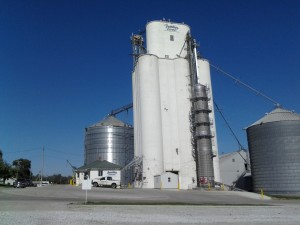Many a family history researcher knows that it’s October in the farm belt. Time to get the crops in while the weather, hopefully, cooperates.
This RecordClick genealogist has enjoyed a good number of picture- perfect fall days lately. Blue skies and breezes with a more than a hint of cooler weather coming seem to be the norm. Farmers are rising before the sun to harvest crops while the weather cooperates. Local producers are spreading their wares at the farmers’ markets. Tomatoes and cucumbers are giving way to squash and pumpkins. In my neck of the woods, soy beans are first, followed by corn. Grain trucks leave trails of dust on the county’s gravel roads as everyone rushes to get the crops to the elevator for storage. Time is money.
The family history researcher will see that time was money for our ancestors who were involved in agriculture. The challenge was to get the money. For those who did not homestead, money was needed to purchase or rent the land. More cash was needed to purchase and maintain the tools and to obtain seed. Many farmers did not have all the financing needed. For those who owned land, the property was collateral for loans that helped get the needed items.

A genealogist may find information in the mortgage deeds used to help purchase big equipment such as grain elevators. PHOTO: J. Shurtliff
This family history researcher has been to a number of conferences that featured sessions on land records. Warranty and quick claim deeds are often discussed by family history researchers at these conferences. Rarely have I heard mention of mortgage deeds even though the walls of rural courthouses are lined with books of them. These mortgage deeds provide insight in the present into how a farmer is doing. They can also help the family history researcher understand why a family stayed in an area or why the family moved on.
To understand mortgage deeds for a given area, the family history researcher should learn some history of the nearby towns and their banking industry. Banks were not usually the first businesses to set up shop in a town. The genealogist can ask:
- How did banks work?
- What services did they provide?
- When were the economic depressions?
- How have regulations changed over the years?
Farmers would usually get mortgages in the spring and, if all went well, they’d pay the loans off in the fall. Profits would provide living expenses for the family for the coming year. If a bank wasn’t an option from which to borrow, this family history researcher has seen neighbors borrow from neighbors. These written agreements, also called a mortgage deed, usually wound up in a record book in the clerk’s office at the courthouse.
The goal of most farmers was to make enough money when crops were sold to put some money into savings as seed money for the next year’s crop. If there were enough good years, perhaps there would be no need to borrow money in the spring. If fall profits did not quite cover expenses, additional money would be needed in the spring. In any case, this information can be useful for a family history researcher looking into ancestors who may have had farms, land or money to loan.
Some additional questions the genealogist might ask:
- If a farmer had financial issues, was the reasons economic, family or weather related?
- Was there a run on the banks?
- Did a spouse get sick and die?
- Was there a drought, flood or insects?
A mortgage deed would provide a good time frame for researching. The family history researcher will find that mortgage deeds are recorded in the same manner as warranty and quick claim deeds. They are also filed in the same indexes. Mortgage deeds are not just for farmers. A businessman seeking to increase inventory may also be one who obtains a mortgage deed using property as collateral.
The family history researcher will find that our ancestors often have a good deal to tell us in the documents they leave behind.
A RecordClick family history researcher will create your special family history with experience in locating courthouse records that include deeds to vital registers to legal disputes.







